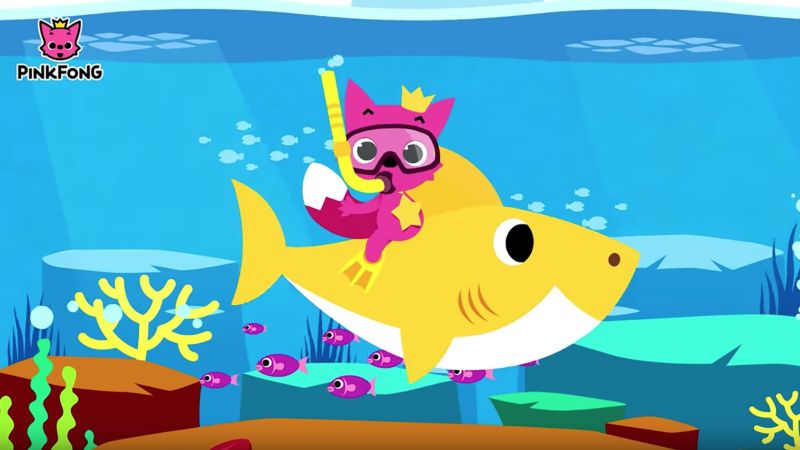Seoul
—
A copyright battle over the viral song “Baby Shark,” adored by young children and often dreaded by their parents, has come to an end with a court clearing the Korean creators of the most popular version of plagiarism.
The internet fell in love with Pinkfong’s version of “Baby Shark,” featuring the unforgettable “doo doo doo doo doo doo” line. The rendition spawned spinoff TV shows, movies and smart phone apps, making the company millions. But in 2019 an American children’s songwriter claimed Pinkfong had copied his work.
Jonathan Wright, known as Johnny Only, took his claim all the way to South Korea’s Supreme Court, accusing Pinkfong of plagiarizing his earlier version of “Baby Shark.”
But the court ruled Thursday that Wright’s version cannot be considered “a creative work” of his, as there were already prior versions of Baby Shark in existence and he did not significantly add new creativity.
“The plaintiff’s song is difficult to be protected as a secondary copyrighted work because it did not reach a substantial alteration to the extend where it could be considered as a separate work, by social norms, from the oral song mentioned in this case,” said the ruling, reaffirming an earlier finding of a lower court.
While most of the world might have first heard “Baby Shark” when Pinkfong’s rendition went viral amassing billions of views on YouTube becoming an anthem for toddlers everywhere, the catchy tune had been a folk song sung around for at least 15 years.
Wright uploaded his version, which also includes the doo doo doo doo doo doo part, to his YouTube channel in 2011. It features him and children doing a simple hand motion, resembling shark’s mouth, to a bouncy beat.
In 2015 and 2016, Pinkfong uploaded its versions with cartoon sharks singing in Korean, and later released it in English with children doing choreographed dances.
But a number of versions of “Baby Shark” predate Wright’s video, including a German version called “Kleiner Hai” that went viral to a lesser extent in Europe in 2010.
After Pinkfong’s renditions captured the world’s attention, sparking social media moments like the #BabySharkChallenge and seeing the song hit No. 32 on the Billboard Hot 100 chart, Wright filed his plagiarism claim, seeking 30 million won ($21,600) in compensation.
His legal case was based on the claim that Pinkfong’s song was “substantially similar” to his and it sought “compensation for damage caused by copyright infringement,” a press release from the court said.
Wright told Canada’s Public Broadcaster CBC in 2019 that Pinkfong’s version “does seem strikingly similar” to his, pointing out that the two songs had “same key, same tempo change, same melody and rhythm.”
The court focused on whether his version can be considered a “secondary work” of the original children’s song, and whether Pinkfong had made their version based on his work.
The Supreme Court ruled that Wright did not make “edits or changes to a level” that could grant him a copyright as a secondary work.
Even with the assumption that his version is a secondary work of the folk song, the court said that there are “no substantial similarities” between Pinkfong’s song and his version.
Pinkfong’s “Baby Shark Dance” video has clocked up more than 16 billion views on YouTube over the years. The company has made millions from Baby Shark themed products, including TV shows, movies and smartphone apps featuring the characters Baby Shark, Mama Shark, Papa Shark, Grandma Shark and Grandpa Shark.

